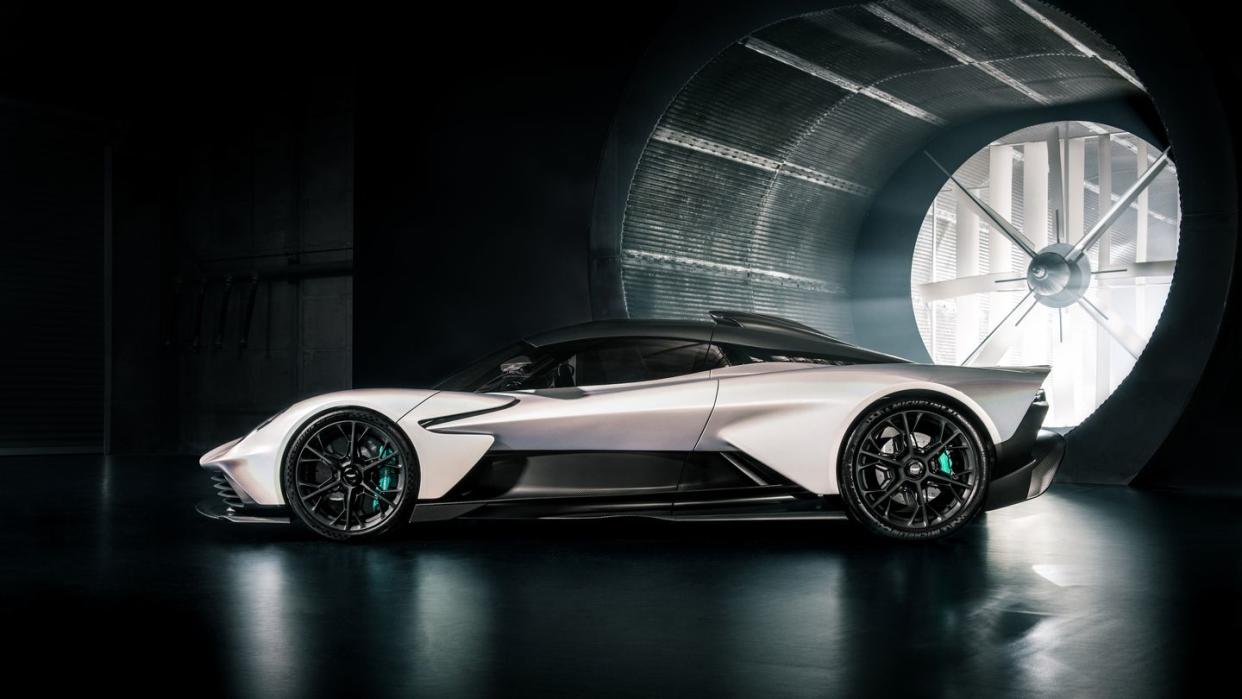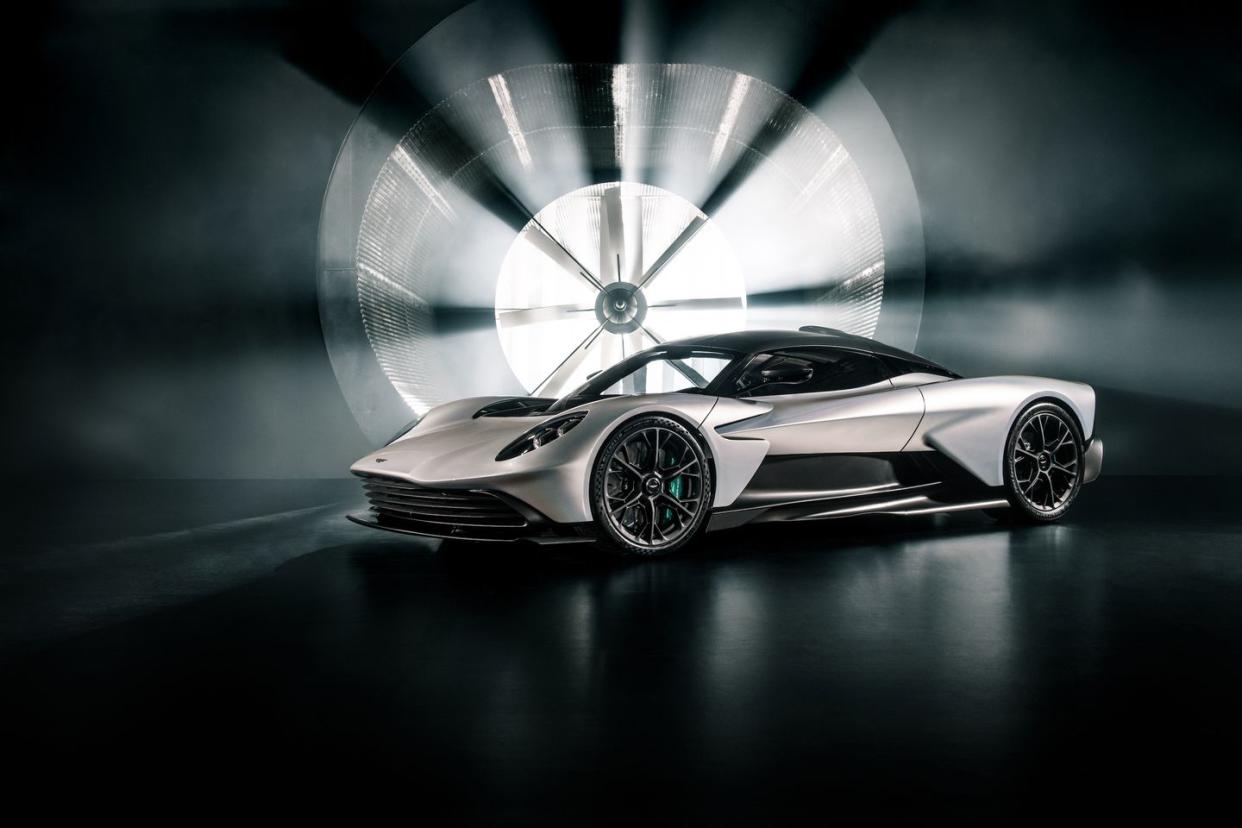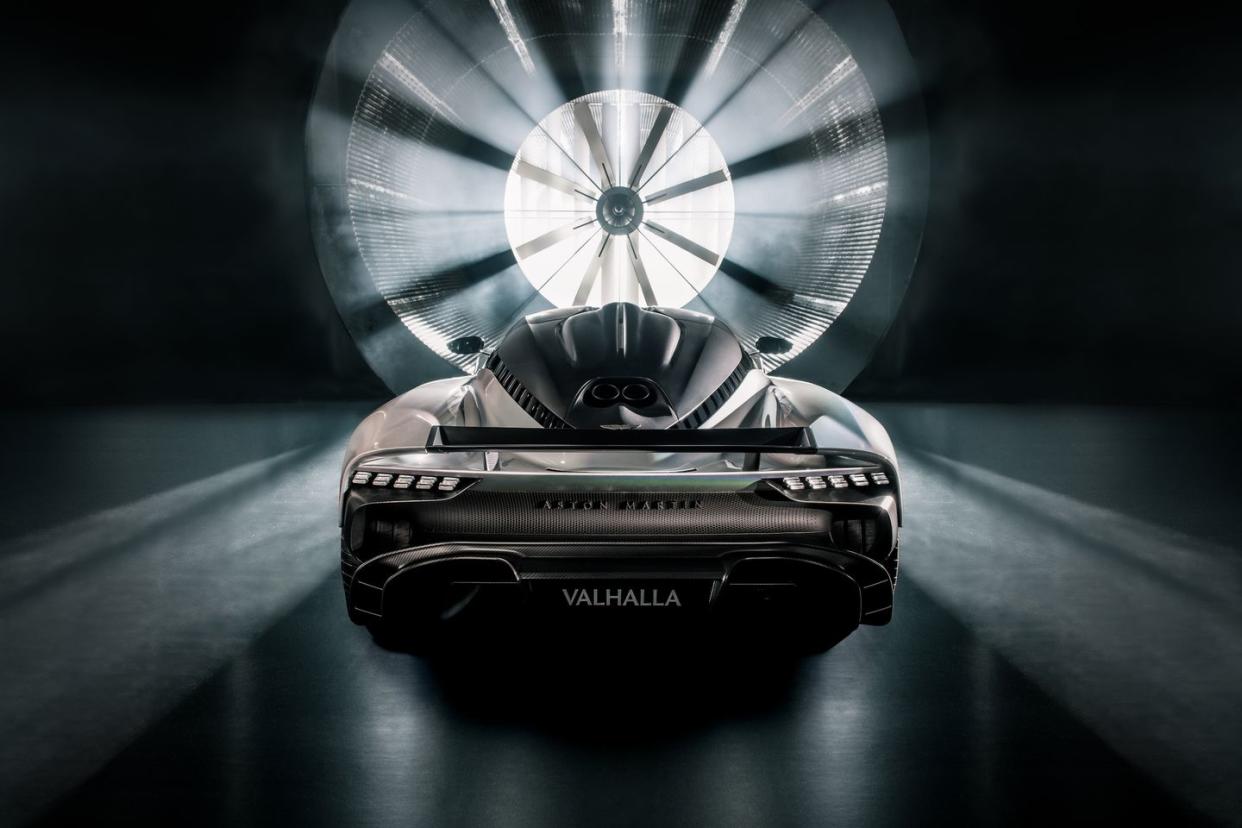Aston Martin Switches Development From Electric Cars to Plug-in Hybrids

Plenty of automakers have already announced delayed or canceled plans for new EVs, and that applies to the very top of the market as well. Less than a month after Bentley said it plans to delay its move to full electrification, Aston Martin has confirmed a similar postponement – and a shift to PHEVs.
“We planned to launch the first car next year,” Lawrence Stoll, Aston’s executive chairman, told journalists at the company’s Gaydon HQ in England on Wednesday. “We were ready to do so, but it seems there was a lot more hype in the EV market that was politically driven rather than by consumer demand, particularly at an Aston Martin price point.”
Stroll says that Aston has already done much of the work on developing a range of four EVs sitting on the same platform, with these set to be a sports car, an SUV, a “type of CUV,” and a halo hypercar.
“We have all those products designed and technically engineered,” he said.
The problem is the prospect of actually selling them. “We just felt a real lack of consumer demand,” Stroll said, “we speak to our dealers, we speak to our customers – when you have a small network you can communicate easily. And everyone said we still want sound, we still want smell.”
Aston announced a couple of months ago that it was going to delay its EV program, with Stroll now saying that the company’s first fully electric model – set to use motors supplied by Lucid – now won’t be launched until 2027, two years later than initially planned. In the meantime, Aston is going to be switching emphasis to a new range of plug-in hybrids, with these ultimately replacing the company’s pure combustion offerings.

The first Aston PHEV will be the previously announced mid-engined Valhalla supercar, with deliveries of the all-wheel driven V-8 hybrid set to begin early next year. But beyond that will be a new line of front-engined plug-ins.
“We are going to invest much more heavily in our PHEV program to be a bridge between full combustion and full electric,” Stroll said, “we think that for our customers and our market that’s going to play out and last quite a while.”
Stroll confirmed he thinks Aston will be selling plug-ins until the mid-2030s, or even further.
“For as long as we are allowed to legally, we will keep making them. I believe there will always be a demand, although granted that demand will shrink.”
The plug-in hybrids will continue to use V-8 engines from Aston’s existing technical partnership with Mercedes and AMG, but Stroll refused to confirm where the electrical side of their powertrains will come from. He also dropped the intriguing possibility that there will ultimately be a hybridized version of Aston’s V-12 engine as well.
We also got more details on Aston’s supercar strategy, with confirmation that the Valhalla coupe – which is officially limited to 999 cars - won’t be a one-off.
“We are going to have various versions,” Stroll said. “Valhalla is our mid-engined platform. We have various concepts – some road versions, some track versions – of what’s going to happen and how Valhalla gets extended, also through the mid-2030s.”

Stroll also remains bullish on Aston’s future, especially given its valuation compared to Ferrari.
“I think our share price is hugely undervalued,” he said. “We have a company in Italy that makes 12,000 supercars and has a Formula 1 team and is worth around €80 billion ($85.738 billion at today's exchange rates). Soon we’ll be making 10,000 cars a year and have an F1 team and there’s a lot of runway between our current market capitalization and €80bn.”
Indeed there is, Aston’s current market cap is €1.57bn ($1.683 billion at today's exchange rates). Stroll is going to be working very hard to close that gap.
You Might Also Like
